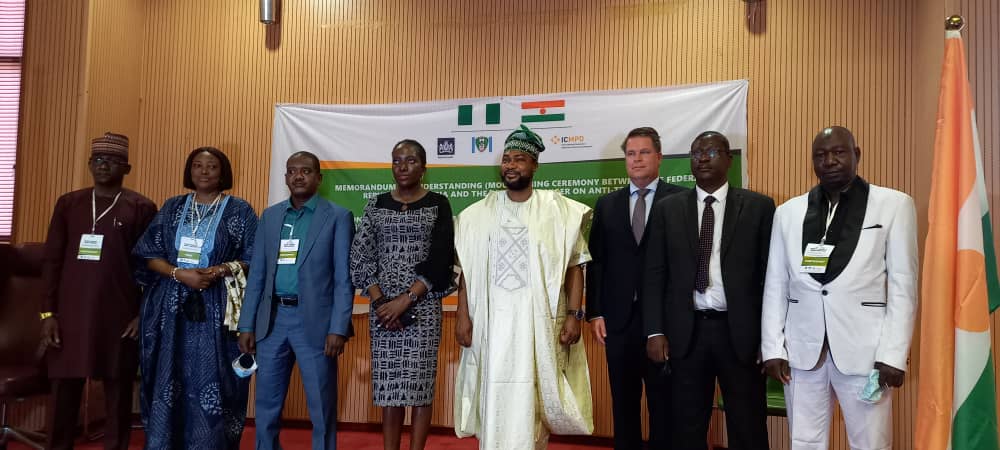The Federal Republic of Nigeria has signed a memorandum of understanding with the Republic of Niger on anti-human trafficking.
The project funded by the embassy of Netherlands is aimed at reducing human trafficking between the two countries and punishing offenders.
Addressing the assemblage of stakeholders from Nigeria, Niger, Austria, Netherlands Japan, Italy, Namibia, among other countries, the Director General of the National Agency for the Prohibition of Trafficking in Persons, NAPTIP, Dr. Fatima Waziri-Azi, said the MoU must be implemented for it to be impactful, adding that it behooves both parties to reinforce mechanisms for monitoring and evaluating its success.
She noted that greater success demands greater engagement from all parties, and solicited continued support from all the stakeholders as according to her, everyone has a responsibility, and the only sufficient response to the global challenge is the legalization of vast solidarity and commitment capable of curbing the crime of human trafficking.

For a stakeholder, Ousmane Mamane, who signed for the Republic of Niger, trafficking in Persons is a global issue that changes strategies at all times, hence it is very crucial for countries to pool their resources to surmount the trend.
He noted that victims of human trafficking, especially women and children, are exploited in both Nigeria and Niger, ranging from prostitution, begging to child labour, and expressed hoped that the MoU would enable the countries protect their women and children who he said are the most vulnerable when it comes to human trafficking.
The Deputy Head of Mission, Embassy of the Kingdom of Netherlands in Abuja, Ewout de Wit, described the project as an important milestone in the cooperation and strengthening of collaboration in the fight against trafficking in persons
Earlier in his opening remark, the Minister of Foreign Affairs, represented by Ambassador Bolaji Akinwumi said the agreement will foster cordial relationship between Nigeria and Niger to address cross border crime of trafficking in persons, adding that both countries have a shared value of protecting human rights.





Comments are closed for this post.